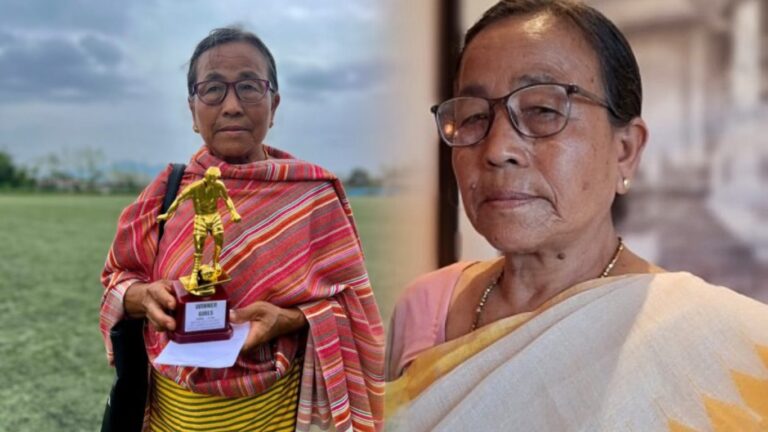Manipur High Court Orders Fresh Certificates for Transgender Doctor Dr. Beoncy Laishram
Short summary
The Manipur High Court has directed state authorities and educational bodies to issue fresh educational certificates to Dr. Beoncy Laishram — replacing earlier entries that recorded her as male / “Boboi Laishram” with her current identity as female / “Beoncy Laishram”. The single-judge bench gave the respondents one month to comply, noting that the district administration had already issued a transgender identity card and that Dr. Beoncy’s Aadhaar, PAN and voter ID had been updated. The court also asked the Manipur chief secretary to instruct all state establishments to incorporate the provisions of the Transgender Persons (Protection of Rights) Act into their rules so future applicants don’t need to go to court.
A quick human snapshot — who is Dr. Beoncy Laishram and why this case landed in court
Have you ever had to change a name or gender marker somewhere official — a passport, a school diploma, a job certificate — and felt the paperwork grind your life to small, painful pieces? Multiply that feeling by ten, and you begin to get why Dr. Beoncy Laishram’s struggle resonates beyond one person.
Dr. Beoncy (formerly recorded as “Boboi Laishram”) is a medical doctor from Manipur who underwent gender-affirming surgery and transitioned to live as a woman. She has been publicly recognised in the region as one of the first transgender medical practitioners from the Northeast and has previously worked as a frontline medical professional. Despite having her identity documents (a transgender identity card, Aadhaar, PAN and voter ID) updated to reflect her female identity, several educational certificates — school, MBBS degree, and related documents — still bore her birth entries (male/Boboi), creating a legal and professional mismatch that forced her to approach the Manipur High Court for relief.
This is a story about paperwork — yes — but also about dignity, the right to have your official life match who you are, and the friction between progressive legal recognition and lagging administrative practice.
What exactly did the High Court order?
Straight to the point: the High Court ordered educational and certification authorities to issue revised certificates that reflect Dr. Beoncy’s name and gender (female) instead of the earlier entries. The bench — led by Justice A. Guneshwar Sharma in the reported order — directed the institutions to make these changes and gave a one-month timeline for compliance after receipt of the order. The court also explicitly asked the Manipur chief secretary to instruct all state establishments to incorporate the Transgender Persons (Protection of Rights) Act, 2019 (commonly called the Transgender Act) into their rules and regulations so that future applicants don’t have to seek court orders for similar corrections.
The chain of documents — what’s already been updated and what wasn’t
Before visiting the High Court, Dr. Beoncy had already taken steps that many transgender people are advised to follow when aligning identity documents: obtain a local transgender identity card and update foundational IDs such as Aadhaar, PAN and voter registration. Reports indicate the District Magistrate of Imphal West had issued a transgender identity card in her new name, and subsequent federal/state IDs were updated accordingly. Yet, despite these changes, educational boards and universities had not issued new certificates reflecting the updated name and gender, which created a professional and legal dissonance for a practicing doctor. That gap is precisely what the High Court addressed.
Final takeaway — a legal win with practical consequences
The Manipur High Court’s order for fresh certificates for Dr. Beoncy Laishram is more than a single-person victory. It’s a nudge to the system: update your rules, align IDs, and stop making people litigate for basic recognition. For a doctor whose practice and dignity were caught between different identities on paper, it’s a real relief. For the larger community, it’s a precedent and a push toward administrative clarity.
FAQs
Q1: What exactly did the Manipur High Court direct in Dr. Beoncy Laishram’s case?
A1: The court ordered authorities to issue fresh educational certificates replacing the earlier entries of male / “Boboi Laishram” with female / “Beoncy Laishram”, and gave the respondents one month from receipt of the order to comply. It also asked the chief secretary to ensure the Transgender Act’s provisions are incorporated into state rules.
Q2: Had Dr. Beoncy already updated any other identity documents before going to court?
A2: Yes. The District Magistrate of Imphal West had reportedly issued a transgender identity card in her new name, and her Aadhaar, PAN and voter ID were also updated — but educational certificates had not been reissued, which led to the court petition.
Q3: Will this order help other transgender people in Manipur?
A3: Potentially yes. The court’s direction to the chief secretary to incorporate the Transgender Act into state rules aims to create a systemic process so future applicants won’t need to go to court. If implemented as intended, it reduces administrative hurdles for others.
Q4: Does the Transgender Persons (Protection of Rights) Act already require such administrative changes?
A4: The Act provides legal recognition and protections, but administrative implementation varies. Courts are increasingly directing governments to operationalise the Act’s provisions in routine rules and processes; this Manipur order is an example of that judicial nudge.
Q5: If a board refuses to change a certificate, what practical steps can someone take?
A5: Gather updated identity documents (transgender ID, Aadhaar, PAN), request the board’s correction procedure in writing, and if refused, consider legal remedies such as a writ petition. The Manipur High Court’s order shows courts will compel boards to act when administrative channels fail



